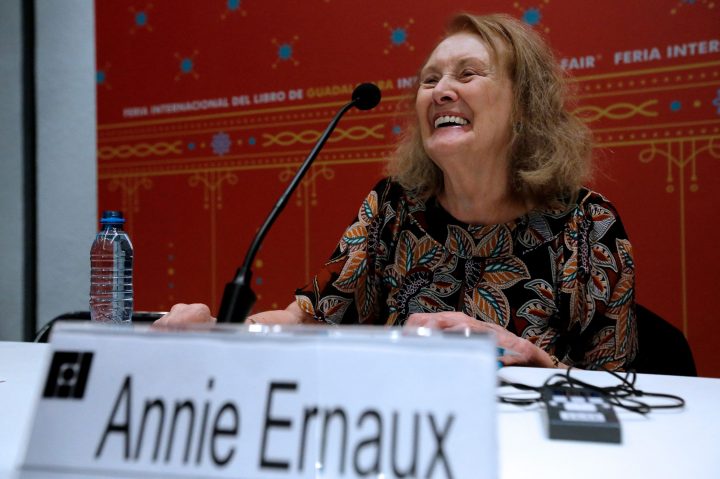
One prized Nobel effect: a bump in book sales

French author Annie Ernaux was announced as the winner of the Nobel Prize in literature today. The award, which has been around since 1901, has the power to make relatively obscure authors a regular presence on bookstore shelves and to supercharge sales for those who are already well-known.
When Abdulrazak Gurnah won the Nobel in literature last year, his print book sales in the U.S. were pretty much non-existent, according to NPD Book Scan.
“He was known, but not hugely known,” said Peter Straus of RCW, his agent.
Since winning the Nobel, Gurnah – who was born in Zanzibar and now lives in England – has sold over 26,000 copies in the U.S., according to NPD.
And Straus said his 10 different books went from being available in just a few countries to over 40.
“There was a huge body of work, and it was a great body of work, and the publishers embraced that.”
The Nobel effect is apparent for other authors, too, even if they don’t win in literature. Daniel Kahneman won the prize in economics in 2002. Cambridge University Press had published several of Kahneman’s books before that.
Editor Stephen Acerra said sales jumped immediately in the first year, and have remained high.
“Though, at the same time, it wasn’t like it jumped to the top of the New York Times bestseller list. These are pretty academic specialist books,” he said.
Acerra points out the prize also comes with other benefits, like increased awareness of the field of work.
There’s a lot happening in the world. Through it all, Marketplace is here for you.
You rely on Marketplace to break down the world’s events and tell you how it affects you in a fact-based, approachable way. We rely on your financial support to keep making that possible.
Your donation today powers the independent journalism that you rely on. For just $5/month, you can help sustain Marketplace so we can keep reporting on the things that matter to you.











